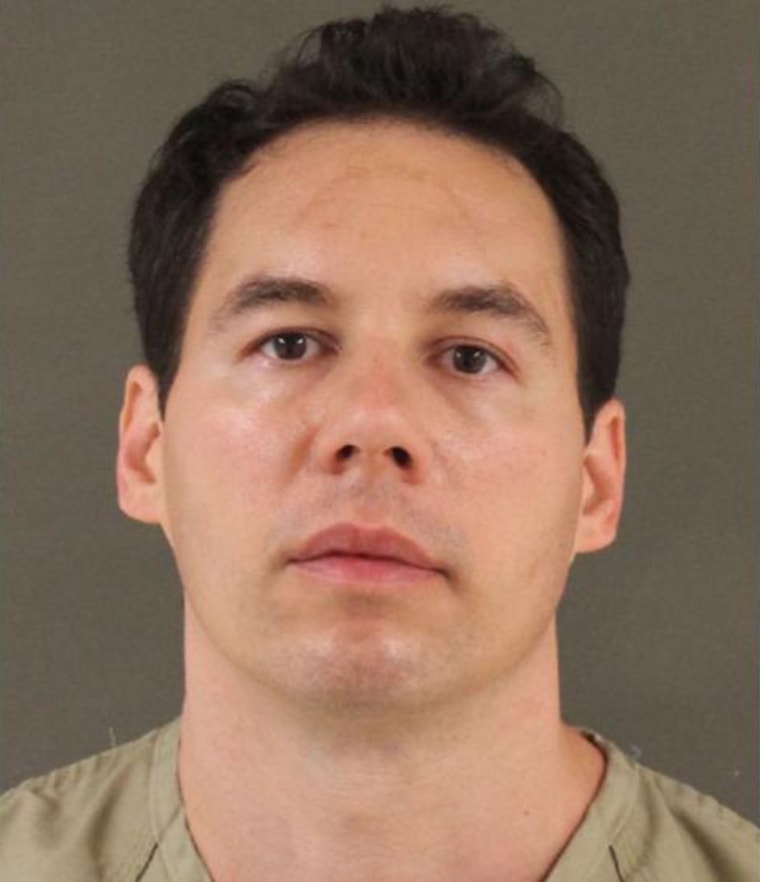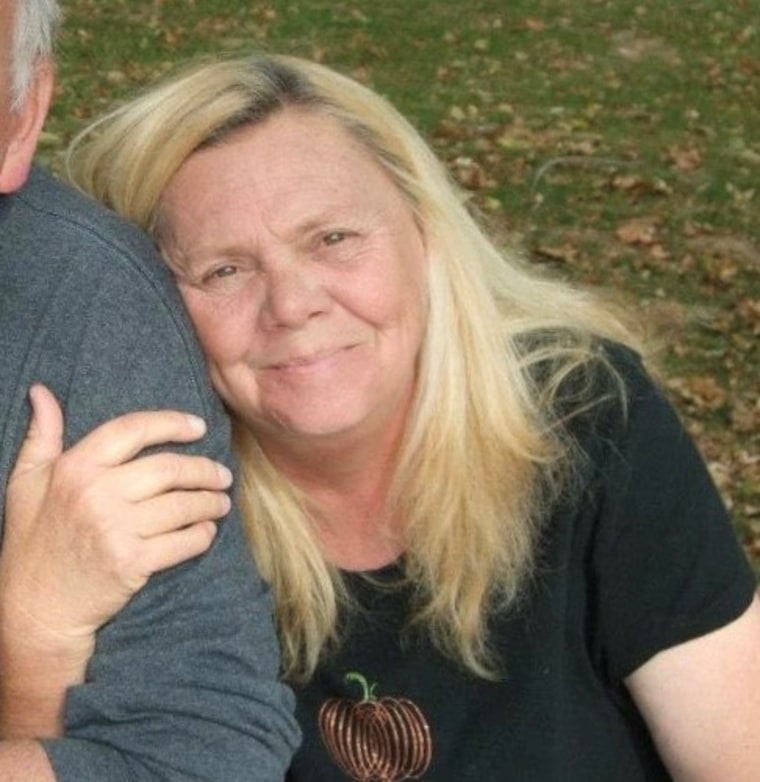An Ohio doctor accused of ordering excessive and potentially fatal doses of opioids to dozens of near-death patients is facing multiple counts of murder, prosecutors announced Wednesday.
William Husel voluntarily surrendered to authorities in Columbus and was charged in 25 deaths following a six-month investigation by the Franklin County Prosecutor's Office. The patient deaths exposed a stunning case of medical oversight and alleged medical malpractice, and called into question how repeated failures potentially involving 30 or more employees could have gone unchecked for so long.

"I've been a prosecutor for 22 years and have not seen a 25-count indictment during those years," Franklin County Prosecutor Ron O'Brien said at a news conference.
Columbus Division of Police Chief Thomas Quinlan added that "this breach of a doctor's oath is vile ... and that begins the process of holding the accused criminal responsible."
Husel, 43, was employed with the Mount Carmel Health System, one of the largest in central Ohio, from 2015 to 2018, which cover the years of the investigation. He was first suspended Nov. 21 and then fired two weeks later.
A motive for why Husel allegedly ordered such large amounts of fentanyl remains unclear, officials said. Many of those who died were older and already seriously ill.
Download the NBC News app for breaking news
"This is not a murder case," Husel's attorney, Richard Blake, told NBC affiliate WCMH. "I can assure you there was never any attempt to euthanize anyone by Dr. Husel. At no time did he ever have the intent to euthanize anyone."
Husel pleaded not guilty and his bond was set at $1 million during an arraignment Wednesday afternoon. Officials confirmed that he had already surrendered his passport, and Blake said Husel "wants to clear his name at trial."
Husel faces 15 years to life in prison per count if convicted. O'Brien said that the doses ordered by the doctor in the 25 deaths "could not support any legitimate medical purpose." Although nurses and pharmacists followed Husel's orders, the doctor remains the main focus of the criminal investigation, he added.
In a statement following Husel's arrest, Mount Carmel Health System said it "will continue to implement meaningful changes throughout our system to ensure events like these never happen again."
The hospital first revealed details about the case Jan. 14, after Franklin County prosecutors and Columbus police began interviewing dozens of witnesses and reviewing medical records. Prosecutors and police said they were investigating the deaths of at least 29 patients who may have been given large fentanyl doses to hasten their end.
The investigation took several months, O'Brien said, because detectives had to familiarize themselves with the various medical roles and conclude whether Husel was violating standard protocol.
Since many of Husel's patients were not alert when they were in intensive care, then "if someone could not feel pain, there would be no legitimate medical reason to administer" the potentially fatal doses of fentanyl, O'Brien said.
The State Medical Board of Ohio suspended the intensive care doctor's medical license in late January, saying its decision was based on his alleged "failure to meet acceptable standards regarding the selection of drugs, violations of the minimal standards of care and failing to cooperate in a board's investigation."
Husel was granted a hearing set for July to appeal the medical board's decision.
He faces at least 19 wrongful-death lawsuits in the case, while eight others were settled, according to reports in May.
In one suit, an attorney for the family of Melissa Penix, an 82-year-old woman who went to Mount Carmel West for stomach pains in November, said she was given 2,000 micrograms of fentanyl about five minutes before she died.
The lawsuit said Husel had told the family before her death that she was brain dead and encouraged them to agree to end her care. In Ohio and every state but seven, physician-assisted deaths are illegal.
In other cases, patients were given doses exceeding 500 micrograms of fentanyl.
Lawyers say up to 100 micrograms of the synthetic opioid would be normal for a patient, depending on their size and the circumstances.
Amy Pfaff's mother, Beverlee Schirtzinger, 63, went to Mount Carmel for a liver biopsy in October 2017 before her health declined and she died within 11 hours of arriving. Pfaff's lawyers say Husel ordered 500 micrograms of fentanyl for her.

On Wednesday, Pfaff recalled her mother as being a happy person who would have wanted to live.
"Why, why, why did you do this? What was your reason?" Pfaff said she would ask Husel if she could, adding that she hopes "justice is served and he faces the consequences of his actions."
Also named in the various civil suits are the Mount Carmel Health System and some pharmacists and nurses. What remains unclear is how Husel could circumvent apparent rules that would require him to order medications through an in-house pharmacy team and then convince a nurse to administer the drug.
Husel's wife, Mariah Baird, is also named in at least one of the suits as administering 800 micrograms of pain medication to a 65-year-old woman who died in 2015. The lawsuit says she's an employee at the hospital.
The majority of the patients died at Mount Carmel's primary care hospital known as Mount Carmel West in Columbus, although at least one case occurred at Mount Carmel St. Ann's hospital in Westerville.
Hospital officials said earlier this year that 30 employees, including nurses and pharmacists, were placed on leave, while 18 others with ties to the case no longer work there — with many of them having already left in prior years. The officials have said they would be "open and honest about what happened," and have installed safeguards to prevent a recurrence.
The hospital's chief pharmacy officer, Janet Whittey, who was named in the Penix lawsuit, left in early February. Calls to her home for comment went unanswered.

